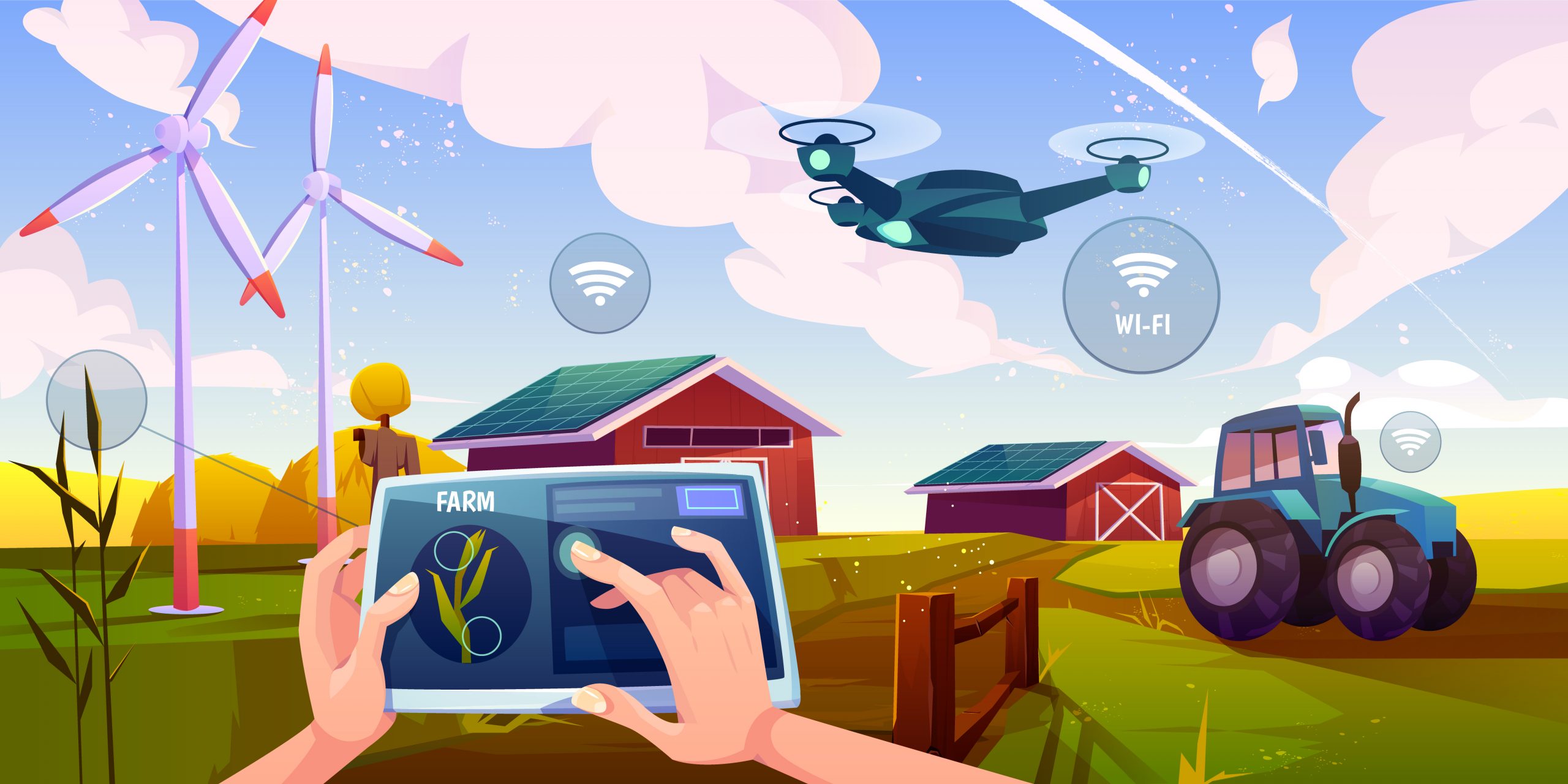Let's Discuss
Enquire NowAgriculture, the foundation of our civilization, has progressed far beyond traditional farming practices. Agriculture has seen a remarkable transformation as a result of the integration of technology, particularly the Internet of Things(IoT). Moreover, these devices are transforming farming by giving farmers real-time data and actionable insights. These smart technologies are assisting farmers in increasing productivity, reducing resource waste, and making educated decisions.
Let’s have a look at the top IoT devices that are changing the agriculture scene:
- Sensors for soil moisture: Soil moisture management is critical for crop health and output. Soil moisture sensors are intended to monitor soil moisture levels and send this information to farmers. This enables precise irrigation scheduling, preventing crop damage and waste of water resources by overwatering or underwatering.
- Climatic stations: The weather has a big impact on agriculture, influencing planting, harvesting, and pest management. Farmers may use IoT-enabled weather stations to get real-time meteorological data. It helps them make informed decisions about when to sow when to protect crops from bad weather, and when to harvest.
- Sensors for Crop Monitoring: Crop monitoring sensors detect a variety of characteristics, including temperature, humidity, and light levels. As a result, farmers can fine-tune their farming operations and detect early indicators of illnesses or pests by collecting crop condition data, enabling preventive actions.
- GPS and Geographic Information System (GIS) Technology: Precision agriculture relies on GPS (Global Positioning System) and Geographic Information System (GIS) technologies. GPS devices with Internet of Things features aid in mapping fields, monitoring equipment, and optimizing planting and harvesting routes for increased efficiency and resource management.
- Livestock observation: Livestock surveillance devices, such as smartwatches and tracking systems, enable farmers to keep track of their animals’ health and positions. This real-time data aids in disease identification and allows farmers to optimize cattle management.
- Automation Systems for Irrigation: IoT-powered irrigation systems can be remotely regulated using real-time data, eliminating water wastage and ensuring crops receive the appropriate amount of water at the appropriate time.

- Integrated tractors and farm equipment: IoT sensors and connectivity are standard on modern tractors and farm machines. These devices allow for remote monitoring and management of equipment, as well as tracking maintenance requirements, ensuring that agricultural operations run smoothly.
- Drone technology: Drones fitted with cameras and sensors can easily examine large areas of agriculture. They collect photos and data for crop health analysis, pest identification, and yield estimation, enabling proactive decision-making.
- Artificial greenhouses: IoT devices installed within the greenhouse monitor and control variables such as temperature, humidity, and light. This produces ideal growth conditions for crops, resulting in larger yields and better crop quality.
- GPS and RFID Animal Tracking: RFID tags and GPS trackers are used to monitor the location and health of individual animals. These technologies aid in efficient herd management and provide vital insights into animal health.
- Crop scouting robots: Weeds and pests in fields can be identified and treated using autonomous robots equipped with cameras and sensors. This eliminates the need for chemical applications while also promoting environmentally friendly farming methods.
- Sensors for Water Quality: Water quality sensors check irrigation water quality to ensure it fulfils specified criteria and does not harm crops or soil, protecting both plant health and the environment.
- Software for farm management: To collect and analyze data, farm management software platforms integrate with IoT devices. These platforms give valuable decision-making insights, assisting farmers in optimizing their operations.
Finally, IoT devices are transforming agriculture by providing farmers with real-time data and insights that allow them to make informed decisions. These innovative methods boost productivity while conserving resources and supporting sustainable farming practices. As technology advances, we can expect even more innovative IoT solutions to further alter the agricultural business, assuring a more efficient and sustainable farming future.
Have a project in mind? Reach out to us
Disclaimer: The opinions expressed in this article are those of the author(s) and do not necessarily reflect the positions of Dexlock.



